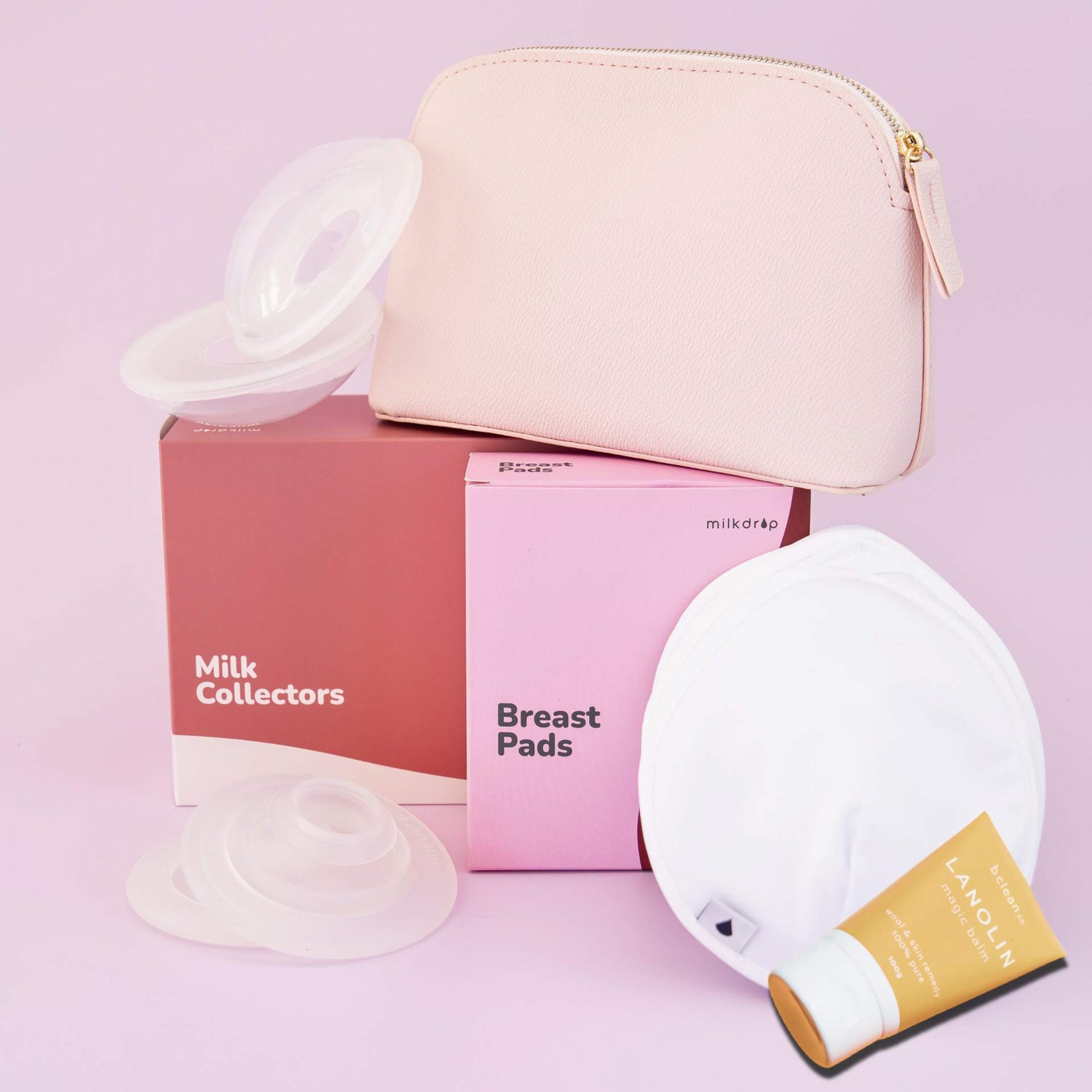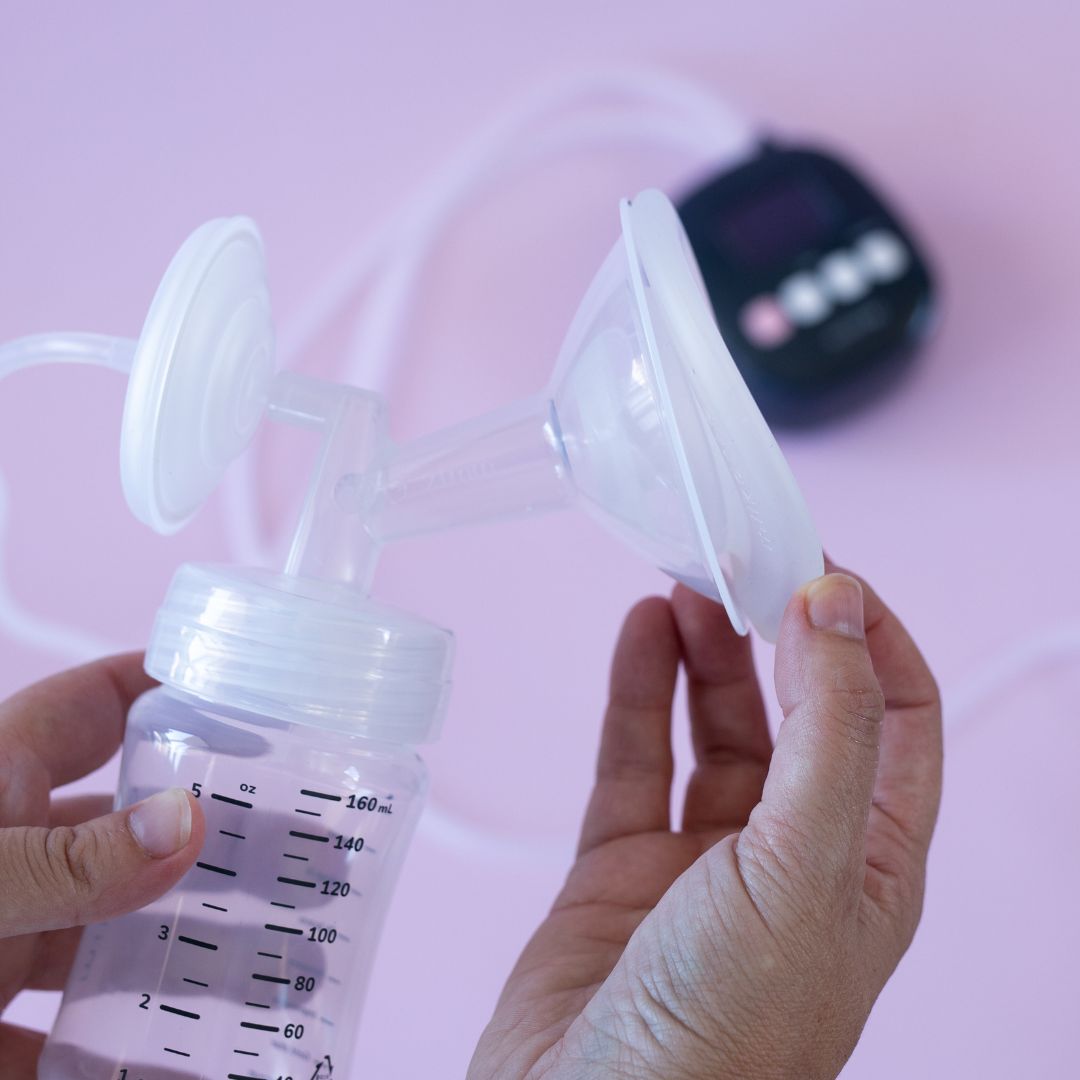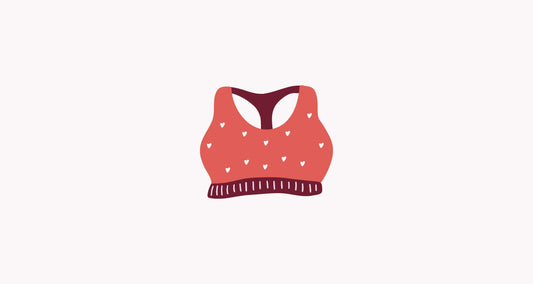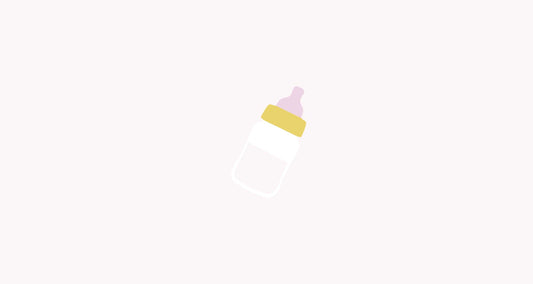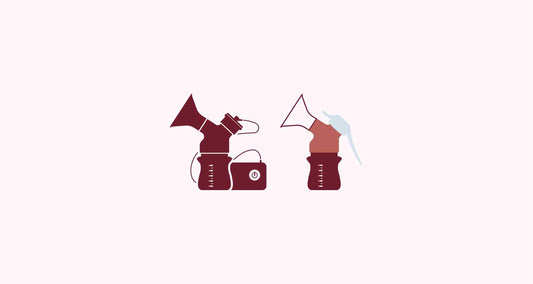If you're in the market for a breast pump (or are already using one but feeling a whole lot of pain and discomfort), you're probably wondering "how do I get the right flange size?"
Never fear, we've put together the top 7 FAQs we get asked about finding the right flange size for you.
1. What's a normal nipple size? Am I doing this right?
The female body is beautifully diverse. To give you an idea, nipple size on one person might be 5mm and another might be 40mm. If you’re measuring numbers somewhere in that range, then you’re probably doing it right.
2. My nipples are measuring different sizes
It’s rare for people to have two nipples that are completely identical. Your nipples are sisters, not twins, and it is possible that you need different flange sizes for each breast.
3. What if I’m between sizes?
Many women measure between flange sizes or measure much smaller than the flange sizes available. For example, you may need an 18mm or 19mm flange, but the smallest flange your pump comes with is a 21mm. If this is you, don’t worry, there are still options!
You can order special flanges or inserts that are made to help with sizing. They aren’t manufactured by the same brands as your pump but are designed to be compatible. Make sure you check compatibility first before you order.
Remember that your nipple size changes over time. Milkdrop can help here, because it’s so soft, it stretches to your shape, so you reduce the chance of having to buy different sizes as you move through your feeding and pumping journey.
4. But my nipples don’t look like your diagram?
There’s every chance that your nipple doesn’t look anything like the one we have presented. Some people have flatter or inverted nipples, others rounder, others pointier. Some people have elastic nipples, meaning that their nipple can stretch longer than about the 3x that is “typical”, and in their case, their nipple fills up whatever space is available.


5. Measuring is confusing me. Is there another way?
You don’t have to tell us that measuring your nipple is a bit absurd!
It can be confusing to figure out your dimensions, and when you do, you might be between sizes. Also, your nipple changes size when you pump, feed, and even with time since you had your baby.
If measuring is too much, then go by look and feel. Try a few different sizes and look for one that allows your nipple to move freely within the tunnel (not touching the sides), without your areola also being drawn up with it.
6. I’m not able to check everything off the flange-fit checklist
Ideally, once you get your flange size sorted, you can check off the flange-fit checklist:
But even with the right flange size, you can still have trouble with comfort, seal and milk flow. Speak with your lactation consultant. Or give Milkdrop cushions a try! We made them super squishy so they mold to the shape of your breast providing comfort and a better seal.
7. Can I measure when I’m pregnant, and use that flange?
Sort of. Sorry, it’s not an easier answer.
You can make a start, and choose a flange, but remember that your nipples change, especially as your body starts to move from creating colostrum, to creating mature milk. You may be fine, just run through the checklist to be sure when you do start pumping. If you need a different flange size then, you can usually order them fairly easily.
Want to learn more about how to find the best flange size for you? Check out our blog on Flange Size 101 here.

